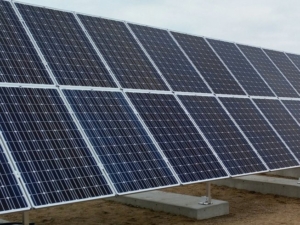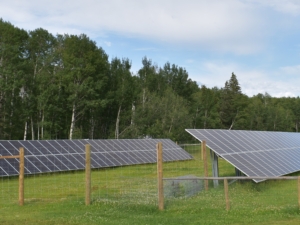SES Solar Co-op owns and operates solar energy installations that any Saskatchewan resident can invest in.
We have the greatest solar resource in the country, providing us with a world-class opportunity to build resilience into our energy infrastructure for ourselves and future generations. By pooling our individual resources to invest in solar projects, we can create a sustainable energy source, offset greenhouse gas emissions from fossil fuel generated electricity, and provide a return on investment – all at the same time.
We invite you to join our 250+ members across the province.
Are you…
- Unable to install solar panels where you live, but keen to participate in the renewable energy economy?
- Producing solar power through rooftop panels but looking to support larger-scale generation?
- Saving for the future through RRSPs and/or TFSAs but wanting a cleaner, more ethical portfolio?
Inquire at hello@sessolarcoop.ca today!
Learn More
Meet the Board of Directors
Resources
Our Projects
The Two Twenty
Our first installation of 90 panels producing 33,000 kilowatt-hours per year.
Landfill Project
This installation powers the Saskatoon landfill methane gas capturing facility.
Haskamp Street
An 80 panel installation with a local building owner and four private businesses.
Radiance Cohousing
A 126-panel, 37.8 kilowatt rooftop system installed at Radiance Cohousing.
Ness Creek
The Ness Creek installation generates 44, 667 kilowatt-hours of electricity.
Wolf Willow
120 panels provide electricity for the Wolf Willow common space.
CNH Industrial
Installed in two separate projects with a combined 792 kW direct current generation capacity, this site is a 1720 panel ‘behind the meter’ installation where all the electrical energy produced is used on site.
The power produced by the project goes directly into the CNH Industrial plant on 71st Street, Saskatoon where it is being used to produce farm equipment while reducing CNH Industrial’s carbon footprint by approximately 650 tonnes a year – equivalent to about 140 residential homes per year.









